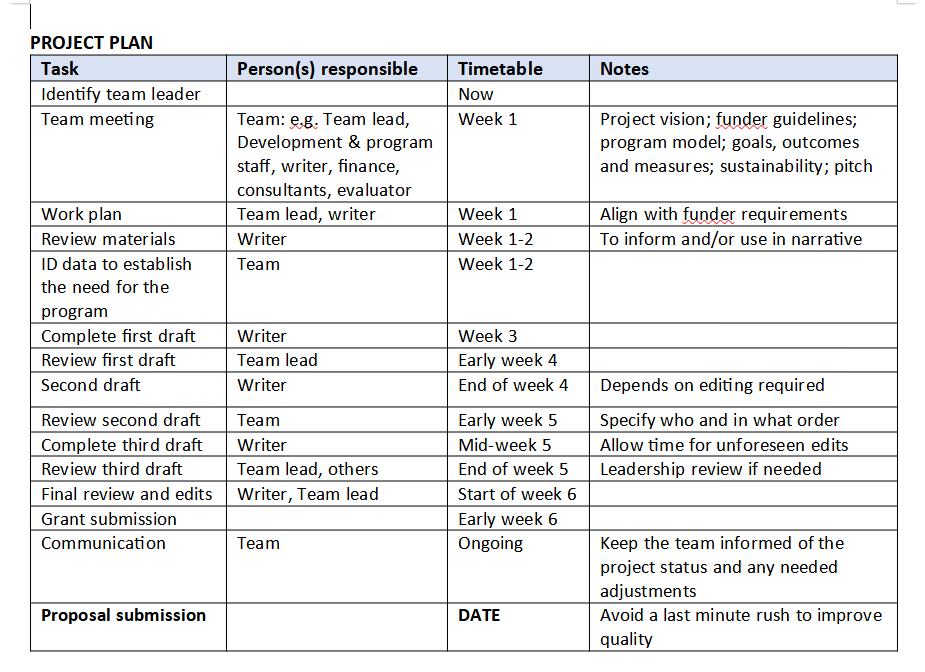Early on, my image of proposal writing was: me, sitting at my desk, drafting, editing, re-writing, more (and more) editing, and finally a finished product. Though I always work with at least one other person to produce a document, I still viewed writing as a solitary activity. The reality is very different, thank goodness.
Considerations
- Be inclusive. The finished product will be stronger and more compelling when it reflects the diverse knowledge, experience, skills, and perspectives of the entire team.
- Get acquainted. While team members may know each other, the project may be new to some or all. Allow time for the group to coalesce around what may be a single-purpose experience.
- Plan carefully. Logistics can be complicated, especially when working across schedules and even time zones. Schedule inclusively and make sure your technology works.
- Bring donuts. The complexity of big grants typically calls for multiple meetings, drafts, editing, and hashing out a model that works. This can tax a team. Acknowledge the challenge and add some fun.
- Stick with it. There may be messy phases – brainstorming, producing, review, and editing – before achieving a cohesive and universally supported final product.
The benefits
- Buy-in. Those who contribute to forming a new program are more likely to remain involved once it’s funded.
- Funders spot potential. A proposal that synthesizes perspectives and points of view demonstrates a foundation for results.
- Collaboration boosts success. A group that works together well will more likely create successful, sustainable models.
- Disagreeable projects can build camaraderie that outlasts their obnoxiousness, (yes, it’s a word!), and can be helpful when the next challenge comes along.
Be patient
Teamwork under deadlines can be challenging, if not downright aggravating. Take deep breaths, plan breaks, and encourage levity. It’s an opportunity to get to know your colleagues better and even have fun, while benefiting your organization well beyond the grant preparation process.

